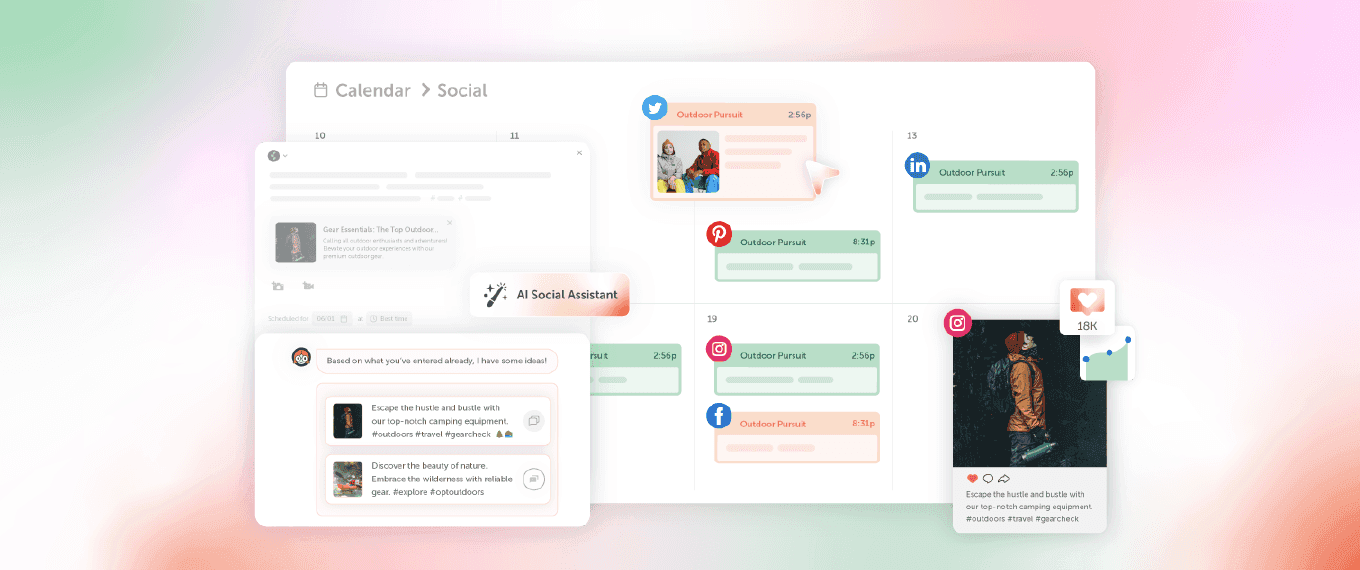How To Use Blog Comments To Become A Better Content Marketer
 If you've been visiting some of the bigger blogs lately, you'll notice an interesting trend: no more blog comments.
Copyblogger and Michael Hyatt are a couple of the more popular bloggers who have pulled comments from their blogs. Other bloggers have entered the debate on why you should and shouldn't include comments with blog posts, or even the value of participating in blog comment sections.
We've even entered the fray, coming out with 10 reasons to have blog comments.
What if we took a different look at the venerable blog comment tradition and viewed it as a form of content marketing? In some way, taking part in a blog comment section is of similar quality of some of the most common venues of content marketing.
If you've been visiting some of the bigger blogs lately, you'll notice an interesting trend: no more blog comments.
Copyblogger and Michael Hyatt are a couple of the more popular bloggers who have pulled comments from their blogs. Other bloggers have entered the debate on why you should and shouldn't include comments with blog posts, or even the value of participating in blog comment sections.
We've even entered the fray, coming out with 10 reasons to have blog comments.
What if we took a different look at the venerable blog comment tradition and viewed it as a form of content marketing? In some way, taking part in a blog comment section is of similar quality of some of the most common venues of content marketing.
How To Use #Blog Comments To Become A Better Content Marketer via @JulieNeidlinger
Click To Tweet Blog comment systems are much different than they used to be.
Systems like Disqus and Livefyre act like a social network. Each user has a profile, and a record of all their comments across all the blogs they've commented on that use these systems. Users can follow profiles, and vote on comments that they deem as valuable.
Blog comments can also be fueled by social networks themselves, such as Facebook or Google+.
In this way, participating in blog comments is quite similar as participating on a social network
Blog comment systems are much different than they used to be.
Systems like Disqus and Livefyre act like a social network. Each user has a profile, and a record of all their comments across all the blogs they've commented on that use these systems. Users can follow profiles, and vote on comments that they deem as valuable.
Blog comments can also be fueled by social networks themselves, such as Facebook or Google+.
In this way, participating in blog comments is quite similar as participating on a social network
Blog Comments To Network And Connect
Old school bloggers who were blogging years ago will fondly remember (and in some cases, not so fondly) the many connections they made in blog comment sections. Before there was social media, a blog comment section was the place to talk about a blog post. If you wanted to share it, you brought it back to your blog and packaged it for your readers. Now, social media has brought that to an end somewhat.
For most blogs, the comment sections aren't as active, nor are they used the same way. Nevertheless, participating in a blog comment section is a way to find new bloggers to follow, and a way for them to find you.
It also makes sense that you would meet and converse with people in the comments of a blog on a topic you were both interested in when otherwise, you'd not have connected.
Blogs now are particularly niche-focused, making it more likely that you will meet relevant people you ought to network and connect with in the comments. You may never see them, otherwise, in social media. You might not end up in the same forum as they. But you are likely reading the same top blogs.
Now, social media has brought that to an end somewhat.
For most blogs, the comment sections aren't as active, nor are they used the same way. Nevertheless, participating in a blog comment section is a way to find new bloggers to follow, and a way for them to find you.
It also makes sense that you would meet and converse with people in the comments of a blog on a topic you were both interested in when otherwise, you'd not have connected.
Blogs now are particularly niche-focused, making it more likely that you will meet relevant people you ought to network and connect with in the comments. You may never see them, otherwise, in social media. You might not end up in the same forum as they. But you are likely reading the same top blogs.
Use #blog comments to connect with peers. Treat it like #socialmedia with unique insights.
Click To TweetBlog Comments For Generating Ideas
A blog comment section is a fabulous place to get ideas for your next post. In fact, I've even written posts in response to discussions I've had in a blog comment section when I feel as if I need to flesh out my thoughts in greater detail. Then, once the post is finished, I go back to the discussion I was having and share the link and note that I wrote about it on my blog. As a blogger, the conversations happening in a blog comments section reveal more about what people want to read about than any daily perusal of your RSS feed reader.
A feed reader tells you what other bloggers think ought to be written. A blog comment section has the questions and thoughts people are telling you they want written.
As a blogger, the conversations happening in a blog comments section reveal more about what people want to read about than any daily perusal of your RSS feed reader.
A feed reader tells you what other bloggers think ought to be written. A blog comment section has the questions and thoughts people are telling you they want written.
 When we published a post called How To Actually Plan Your Blog And Save A Ton Of Time, Ella had a great question for us. We used that inspiration from her blog comment to write a post called How To Start A Blog When You Have Absolutely No Audience to answer her question (and then we let Ella know when it launched).
This is particularly the case on a popular industry blog, where people are turning to the expert for help. They will ask for clarification and help.
Why not write a post and be that help?
Pay attention to the words other blog commenters are using when they ask questions or comment, so that you use those same words in your own blog posts.
When we published a post called How To Actually Plan Your Blog And Save A Ton Of Time, Ella had a great question for us. We used that inspiration from her blog comment to write a post called How To Start A Blog When You Have Absolutely No Audience to answer her question (and then we let Ella know when it launched).
This is particularly the case on a popular industry blog, where people are turning to the expert for help. They will ask for clarification and help.
Why not write a post and be that help?
Pay attention to the words other blog commenters are using when they ask questions or comment, so that you use those same words in your own blog posts.
Use #blog comments to find your best blog ideas. #blogging
Click To TweetBlog Comments Can Build Your Reputation
There are some content marketers who don't actually have a blog. They write on social media, such as Google+, participate in niche forums, or they focus their efforts on being a serious blog commenter. They build a reputation as an expert based on what they say in these non-blog locations. Reputation building can happen off of your blog. When people start to see your name across blocks in your industry, and see that you are leaving great comments, they remember.
Your blog comments are building your reputation as someone with knowledge and expertise. People take notice. It may lead to requests for guest blog posts, an interview, or other avenues to participate in content marketing.
Frankly, a knowledgeable post stands out in a blog comment section in this day and age.
There is such a thing as building a bad reputation, of course. One thing I do, when reading a cantankerous comment on a blog, is click on the commenter's name. If it is a comment system such as Disqus, I can quickly see what kind of comments they generally leave, and I assign them a reputation. Some people only leave comments to say disagreeable things. Even if they have their own blog and it is filled with great content, I'm not going to bother.
The comments you are leaving are building your reputation. Make it a good one that shows you are knowledgeable and even-handed, instead of a disagreeable jerk with little to add to the conversation.
When people start to see your name across blocks in your industry, and see that you are leaving great comments, they remember.
Your blog comments are building your reputation as someone with knowledge and expertise. People take notice. It may lead to requests for guest blog posts, an interview, or other avenues to participate in content marketing.
Frankly, a knowledgeable post stands out in a blog comment section in this day and age.
There is such a thing as building a bad reputation, of course. One thing I do, when reading a cantankerous comment on a blog, is click on the commenter's name. If it is a comment system such as Disqus, I can quickly see what kind of comments they generally leave, and I assign them a reputation. Some people only leave comments to say disagreeable things. Even if they have their own blog and it is filled with great content, I'm not going to bother.
The comments you are leaving are building your reputation. Make it a good one that shows you are knowledgeable and even-handed, instead of a disagreeable jerk with little to add to the conversation.
Write knowledgeable and even-handed #blog comments, instead of being a disagreeable jerk.
Click To TweetBlog Comments As Your Side Blog
Depending upon how thoughtful and how much time you put in the comments section of a blog (going beyond the not-so-helpful "great post!"), you could view a blog comments section as a secondary method for blogging. We've talked about syndicating and repurposing your content on sites such as Medium.com, LinkedIn, et. al. In a sense, the blog comment section of a high-traffic blog can do some of the same.
If you have written a great post that would really fit into the conversation in a comments section of a blog post, rework your blog post into a summary and share it in the comments section. This is better than simply saying "I wrote a post about this: http://blahblah.com" because people are tired of spammers leaving links without explanation in the comment section.
Getting your content on Medium and LinkedIn works well because you expose it to a new audience. The same goes for a blog comment section, as long as you trim it down and provide a tidy quick-read summary.
If you want to include the link at the end, you might say "I've talked about this in a bit more detail on my own blog" and use an inline link so it is visually appealing and seems less like link spam.
We've talked about syndicating and repurposing your content on sites such as Medium.com, LinkedIn, et. al. In a sense, the blog comment section of a high-traffic blog can do some of the same.
If you have written a great post that would really fit into the conversation in a comments section of a blog post, rework your blog post into a summary and share it in the comments section. This is better than simply saying "I wrote a post about this: http://blahblah.com" because people are tired of spammers leaving links without explanation in the comment section.
Getting your content on Medium and LinkedIn works well because you expose it to a new audience. The same goes for a blog comment section, as long as you trim it down and provide a tidy quick-read summary.
If you want to include the link at the end, you might say "I've talked about this in a bit more detail on my own blog" and use an inline link so it is visually appealing and seems less like link spam.
Provide a unique perspective in #blog comments and link to a post to flesh out the idea.
Click To TweetBlog Comments As Your Daily Routine
Most content marketers have a particular daily routine that they use to get ideas, stay active, and stay knowledgeable in their niche. These routines usually involve going through the day's RSS feeds in a reader, planning upcoming content on their editorial calendar, responding to social media, and so on. Why wouldn't you also block out time to leave one or two long comments on relevant blogs? That ought to be a part of your regular routine, too, if you are trying to build a reputation and a following.
We talk a lot about long-form blog posts. Let's consider its cousin: long-form blog comment.
You don't have to write a 1,000 word blog comment every day, but you can certainly leave a few paragraphs of relevant content to meet other commenters and earn the appreciation of the blog owner where you left your comment.
Why wouldn't you also block out time to leave one or two long comments on relevant blogs? That ought to be a part of your regular routine, too, if you are trying to build a reputation and a following.
We talk a lot about long-form blog posts. Let's consider its cousin: long-form blog comment.
You don't have to write a 1,000 word blog comment every day, but you can certainly leave a few paragraphs of relevant content to meet other commenters and earn the appreciation of the blog owner where you left your comment.
Long-form comments are the cousin to long-form blog posts. #blogging #contentmarketing
Click To TweetAlways Follow Blog Comment Rules
Before you rush off to begin a routine of blog commenting, keep in mind a few rules. Blog comments are sacred property. They are always under attack by the spammer hordes who are rushing the walls and clamoring across the moats with links, non sequiturs, and jibberish. As more and more big name bloggers turn comments off and begin closing the door to a previously great way to have a conversation, it's more important than ever that you be on your best behavior when leaving a blog comment.
As more and more big name bloggers turn comments off and begin closing the door to a previously great way to have a conversation, it's more important than ever that you be on your best behavior when leaving a blog comment.
- Read the post before commenting. And by read the post, I mean, read the full post. Don't read the first few paragraphs and hop down to the bottom to leave a comment. Chances are pretty good that what you're about to say has been covered in the post you did not read.
- Say something useful. When approaching blog comments as a form of content marketing, you must leave actual content. While writers appreciate being told someone enjoyed what they wrote, this is not the kind of statement that will bring any readers to your own blog. Address the topic mentioned in the blog. Add to or debate the content presented. Think of your comment as a mini-blog post, with an intro, body, and conclusion. If your comment doesn't provide more information or conversation starter for other readers, it isn't terribly useful.
- Resist the urge to turn everything into a tech forum. Just because a blog post mentions a plugin or some other tool, and your search for help using that tool led you there, leaving a support request is foolish. A few years ago I wrote a post about merging Google+ pages in which I outlined a simple method for a specific scenario. The comments section turned into a support request forum, and some commenters bordered on unpleasant and demanding. If you have a question about something, go to the company that makes the product and its proper support system, not the blogger who wrote about it. They don't owe you anything beyond the blog post they gave you.
- Rethink leaving a URL. Most comment sections allow you to connect a link to your name, and some comment systems, like Disqus, provide you a profile. Let that be the method by which you allow others to find you, instead of leaving links to your blog and saying "I wrote this, you should read it." Let your first comment be meaty and link-free. Follow up comments, where you've established you're not a spammer or just looking for traffic, can link to appropriate specific posts you've written.
- Sum up the post you want to link to. If you have written a post that is the perfect response to a blog post, sum it up in your comment so there is a significant amount there. Mention that you've written about it on your own blog and that is why this post piqued your interest. Leave an inline link if possible, instead of just pasting the http:// link in the comment copy.
- Don't spam. This is a given. If you're there just to leave a link to your app or blog, don't bother. Your behavior is helping close down blog comments sections all over the place.


